French Bulldogs have become one of the most sought-after dog breeds worldwide, and it’s no wonder why. Their adorable features, playful personalities, and manageable size make them ideal for many pet owners. But is a French Bulldog the right fit for you? Let’s explore everything you need to know—from their temperament and care to their lifespan and unique qualities.
Table of Contents
- The Lovable Personality of French Bulldogs
- What Makes a Fluffy French Bulldog Unique?
- Understanding French Bulldog Puppies
- Pros and Cons of Owning a French Bulldog
- French Bulldog Lifespan: What to Expect
- Common Health Issues in French Bulldogs
- Grooming Tips for French Bulldogs
- Popular French Bulldog Colors and Their Appeal
- How to Spot a Blue French Bulldog
- Exercise and Activity Needs for French Bulldogs
- Diet and Nutrition Tips for French Bulldogs
- Are French Bulldogs Good with Children?
- French Bulldogs in Apartments and Small Spaces
- Training Tips for French Bulldogs
- Frequently Asked Questions (FAQs)

1. The Lovable Personality of French Bulldogs
French Bulldogs are famously affectionate and adaptable. They’re known for forming strong bonds with their owners and thrive on human interaction.
Frenchies typically have a playful yet laid-back demeanor, making them excellent companions for singles, couples, and families alike.
Despite their small size, they have big personalities. They are curious, cheerful dogs that enjoy being at the center of attention.
French Bulldogs rarely bark excessively, which makes them a good fit for those living in apartment settings.
When it comes to interacting with strangers, they are generally friendly, though a little aloof at times.
They’re excellent watchdogs as they’ll alert you to unusual sounds or visitors without being overly aggressive.
Another fun trait is their expressive faces—many owners say Frenchies have a way of communicating through their eyes and mannerisms.
Being a brachycephalic breed, they’re also known for their adorable snorts and snores, which add to their charm.
With minimal aggression and a love for cuddling, their personality ranks high among dog lovers worldwide.

2. What Makes a Fluffy French Bulldog Unique?
A fluffy French Bulldog may look like a visual anomaly, but they’re gaining popularity for their distinct appearance.
Unlike standard French Bulldogs, which have short, smooth coats, fluffy French Bulldogs boast a slightly longer, velvety coat due to a recessive gene.
This creates a unique, teddy-bear-like look that many find irresistible. While their coat might suggest extensive grooming, fluffy French Bulldogs surprisingly require similar care to their short-haired counterparts.
Their rarity significantly impacts their price—they typically cost more than standard French Bulldogs due to their rare genetic traits.
Despite their aesthetic differences, fluffy French Bulldogs share the same friendly, playful personality traits that Frenchies are known for.
It’s worth noting that reputable breeders prioritize health over aesthetics.
If you’re considering adopting a fluffy French Bulldog, ensure it comes from a responsible source to avoid health or genetic issues.
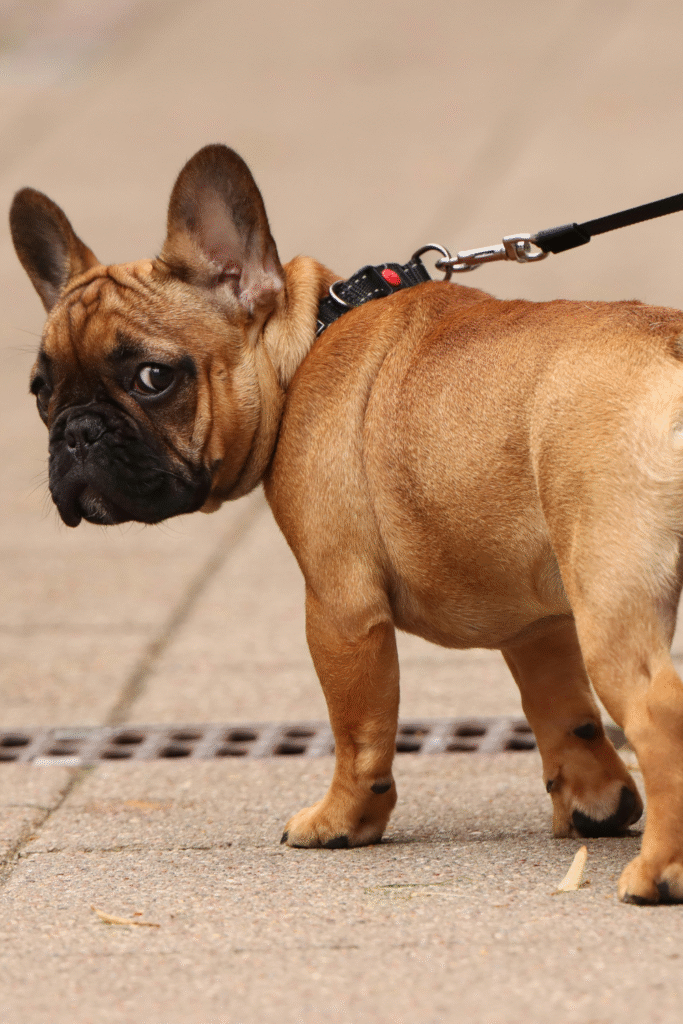
3. Understanding French Bulldog Puppies
French Bulldog puppies are bundles of energy and charm. From the moment you bring one home, their curiosity and spirited antics will capture your heart.
However, raising Frenchie puppies comes with a learning curve.
These little pups require careful attention to their diet, vaccination schedules, and socialization.
Their small stature doesn’t mean they’re fragile, but they do need gentle handling, especially as their bones are still developing.
Potty training a French Bulldog puppy is fairly straightforward due to their intelligence, but patience is essential.
Positive reinforcement works wonders when teaching commands and house rules.
Over time, you’ll notice how their playful behavior evolves into a more laid-back routine as they mature.
Keep in mind that socialization is key during the puppy stage.
Exposure to different environments, people, and other pets fosters a confident and well-adjusted adult dog.
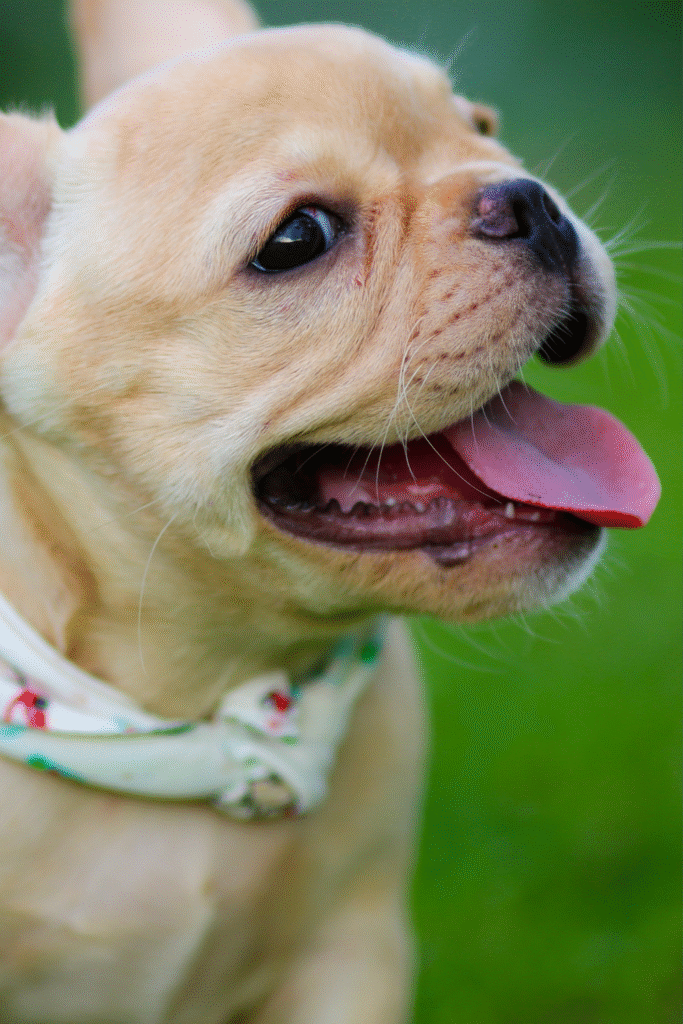
4. Pros and Cons of Owning a French Bulldog
Owning a French Bulldog comes with its share of joys and challenges.
Here’s a breakdown of the pros and cons to help you decide if this breed is right for you.
| Pros | Cons |
|---|---|
| Affectionate and Loyal | Health Issues – French Bulldogs are prone to certain medical conditions such as breathing problems (due to their brachycephalic nature), hip dysplasia, and skin allergies. |
| Great with Families – They are friendly and get along well with children and other pets, making them great companions for households. | High Maintenance – They require consistent grooming, cleaning of skin folds, and monitoring of their health closely. |
| Compact Size – Their small size makes them ideal for apartment living and urban environments. | Stubborn Nature – They can be difficult to train at times due to their independent streak. |
| Low Exercise Needs – They don’t require intense physical activity and are typically content with short walks and playtime. | Overheating Risk – Due to their short snouts, they are more susceptible to heatstroke and require careful attention in warmer climates. |
| Low Barking Tendency – They are generally not loud dogs, making them suitable for quieter living situations. | Expensive to Own – From the initial purchase to ongoing care, French Bulldogs can be a costly breed to own due to their specialized needs. |
| Adaptable Personality – They can easily adjust to different living arrangements and routines. | Potential for Separation Anxiety – Due to their attachment to owners, they don’t do well when left alone for long periods. |
This table provides a clear look at the benefits and potential challenges of having a French Bulldog, helping you make an informed decision on whether they are the right fit for your lifestyle.
Despite a few challenges, many owners agree that the Frenchie’s loving nature outweighs any drawbacks.
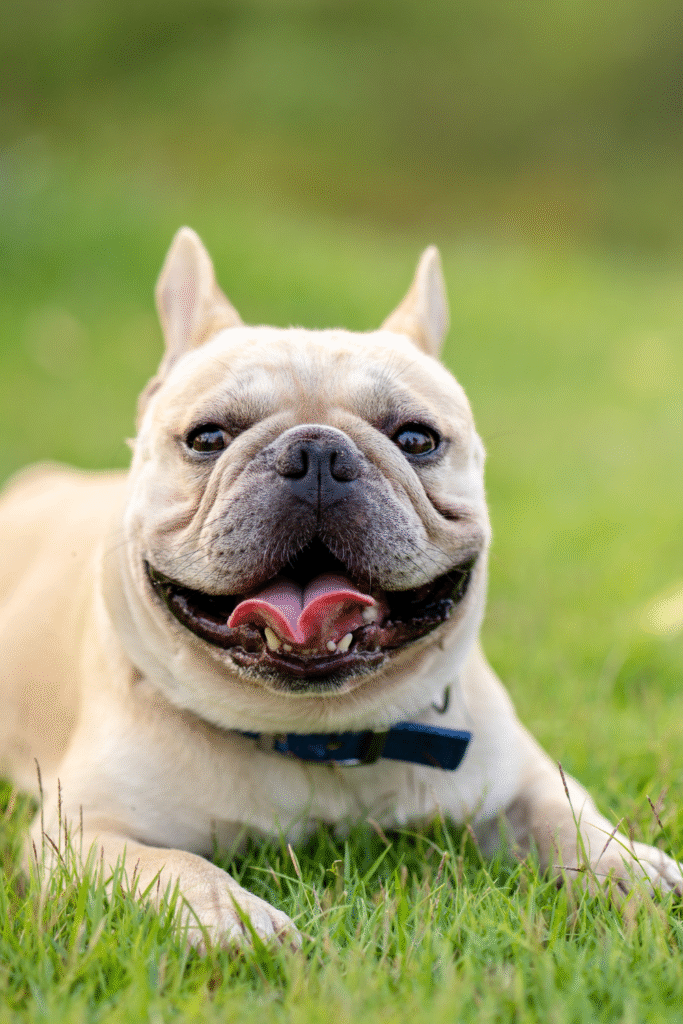
5. French Bulldog Lifespan—What to Expect
The average French Bulldog lifespan is between 10 to 12 years.
While genetics play a huge role, factors like diet, exercise, and regular veterinary visits greatly influence their longevity.
Many French Bulldogs live beyond 12 years when given proper care.
To ensure your Frenchie has a long, healthy life, be proactive about their diet and health issues.
For instance, brachycephalic breeds like French Bulldogs are more susceptible to respiratory problems, so keeping them in a cool, temperature-controlled environment is essential.
It’s also important to manage their weight. Obesity can worsen their breathing issues and place undue stress on their joints.
Regular, moderate exercise goes a long way in keeping their muscles and circulatory system in check.
Understanding your Frenchie’s specific needs will go a long way toward ensuring they live a happy and fulfilling life.

6. Common Health Issues in French Bulldogs
- Brachycephalic Airway Syndrome: Due to their short noses and flat faces, French Bulldogs are prone to breathing difficulties. Symptoms include snoring, wheezing, and intolerance to heat or exercise. Regular check-ups and avoiding overexertion can help manage this condition.
- Allergies: French Bulldogs can suffer from skin allergies due to environmental factors, food, or fleas. It’s important to monitor their skin for redness or itching and address triggers promptly.
- Hip Dysplasia: This genetic condition affects the hip joint, leading to discomfort and mobility issues. Maintaining a healthy weight and providing joint supplements can help alleviate symptoms.
- Spinal Disorders: French Bulldogs are at risk of conditions like Intervertebral Disc Disease (IVDD) due to their compact bodies. Limiting jumping and ensuring proper back support can reduce the risk.
- Eye Problems: They are prone to eye conditions such as cherry eye, cataracts, and dry eye. Regular cleaning and veterinary care are crucial to prevent complications.
- Heat Sensitivity: French Bulldogs can easily overheat due to their inability to regulate temperature efficiently. Always keep them cool and avoid exercising them in hot weather.
French Bulldogs are prone to specific health problems due to their unique anatomy.
These include respiratory issues, hip dysplasia, and skin allergies.
Their brachycephalic (flat-faced) structure makes them more vulnerable to overheating and breathing difficulties.
It’s advisable to monitor their activity in warm weather and avoid leaving them outdoors during hot summers.
Regular veterinary checkups can help catch and treat conditions early, making a world of difference in their quality of life.
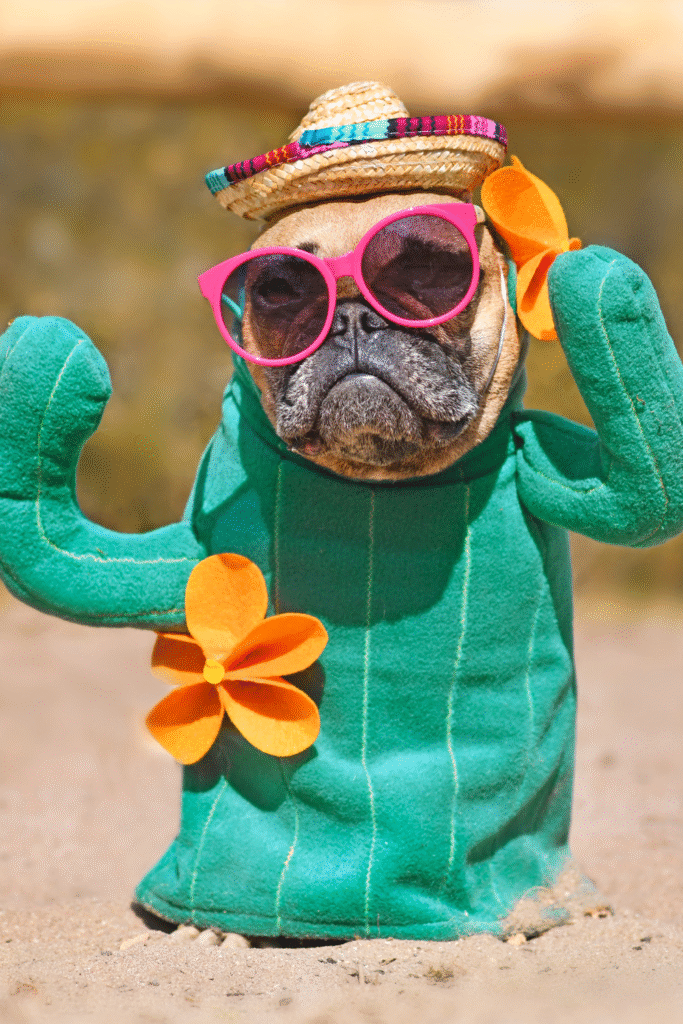
7. Grooming Tips for French Bulldogs
- Brushing: French Bulldogs have a short, smooth coat that requires minimal grooming. Brushing them once or twice a week can help remove loose hair, distribute natural oils, and keep their coat shiny.
- Bathing: Bathe your French Bulldog every 4-6 weeks or as needed to keep their skin and coat clean. Use a gentle, dog-safe shampoo to prevent irritation.
- Facial Folds: Their facial wrinkles need regular cleaning to prevent moisture build-up and bacterial infections. Wipe these folds gently with a damp cloth or pet-safe wipe and ensure they’re dry afterward.
- Nail Care: Trim their nails regularly to avoid overgrowth, which can cause discomfort or difficulty walking. A grinding tool or nail clipper can be used for this purpose.
- Dental Hygiene: Brush their teeth several times a week using dog-specific toothpaste to prevent plaque buildup and maintain oral health.
- Ear Cleaning: Check and clean their ears weekly to remove dirt and wax, reducing the risk of infections. Use a vet-recommended ear cleaner for safety.
- Seasonal Grooming: During shedding seasons, increase brushing to manage fur loss and maintain a clean home environment.
Although French Bulldogs are low-maintenance, proper grooming is still essential.
Brush their coat weekly, clean their facial folds to prevent irritation, and trim their nails regularly.
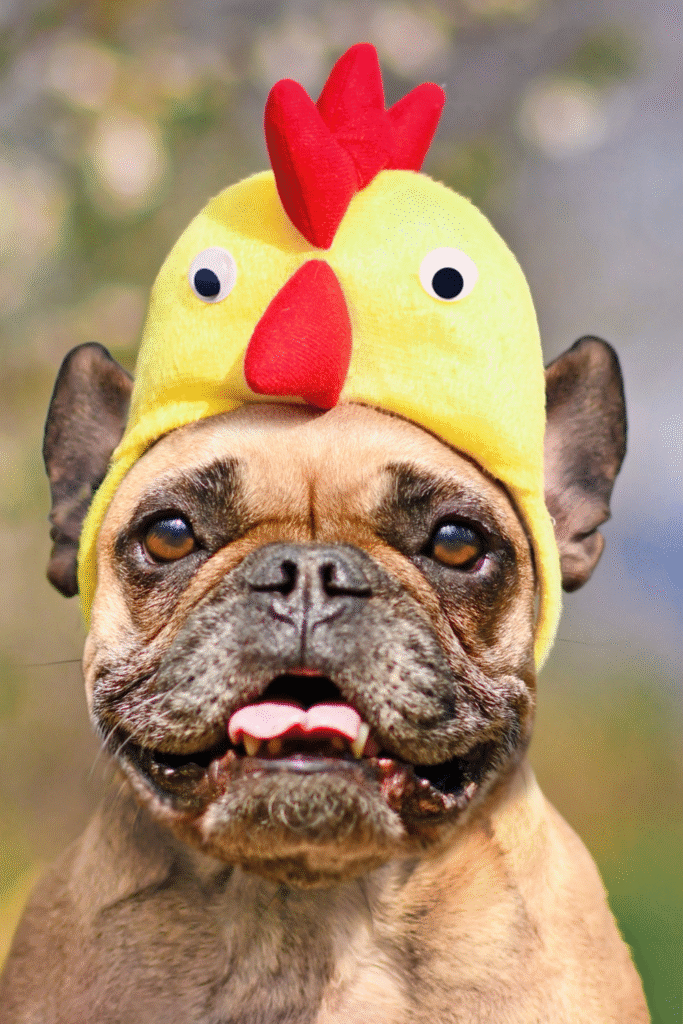
8. Popular French Bulldog Colors and Their Appeal
French Bulldogs come in a variety of colors, including fawn, brindle, pied, blue, and even rare lilac.
Each color brings a unique charm, with blue French Bulldogs being particularly sought after for their striking appearance.
- Fawn: Fawn-colored French Bulldogs are one of the most common variations, ranging from light tan to a rich reddish shade. Their smooth coat and warm tone give them a classic and endearing look.
- Brindle: Brindle French Bulldogs feature a striking mix of dark and light streaks, creating a tiger-striped pattern that adds depth and uniqueness to their coat.
- Pied: Pied French Bulldogs have a white base coat punctuated with patches of another color, such as brindle or fawn. This pattern creates a playful and distinctive appearance.
- Blue: Blue French Bulldogs boast a sleek, bluish-gray coat that exudes sophistication. Their unique color is a result of a genetic dilute gene, making them rare and highly prized.
- Lilac: Lilac French Bulldogs are exceptionally rare, combining blue and chocolate tones for a pale, silvery hue. This eye-catching color often has a soft, almost ethereal quality.
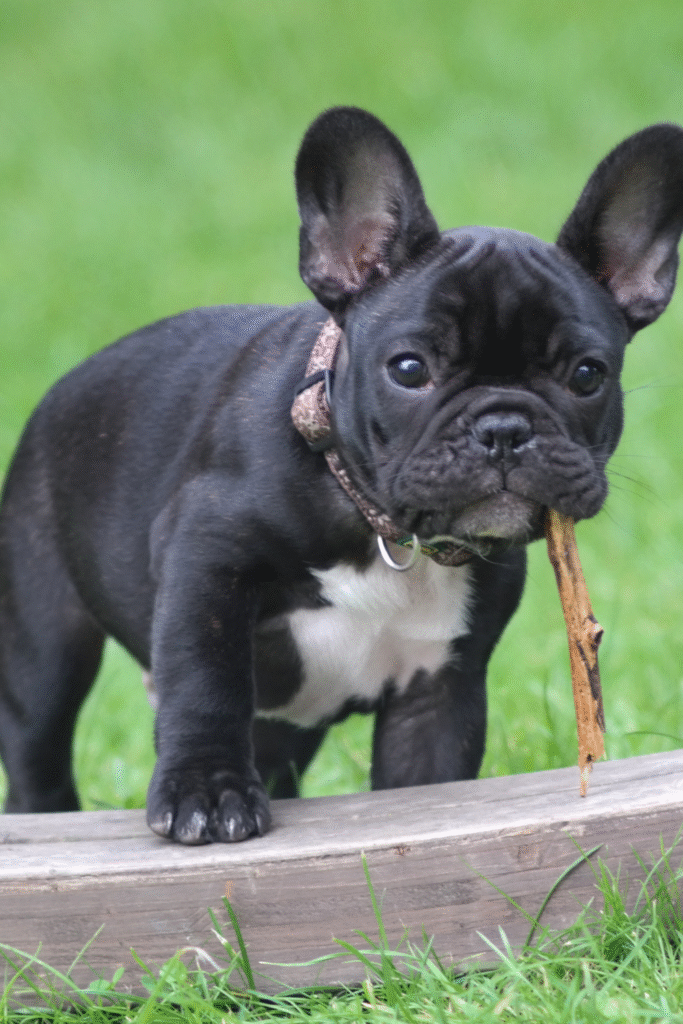
9. How to Spot a Blue French Bulldog
Spotting a Blue French Bulldog is relatively straightforward once you know what to look for.
Their coat is the most distinguishing feature, characterized by a smooth, bluish-gray color that shimmers in the light.
This unique hue comes from a dilute gene that affects their black pigmentation.
Blue French Bulldogs often have lighter-colored eyes, which can range from blue to amber or green, adding to their striking appearance.
It’s important to note that the color of their coat can vary slightly depending on genetics and lighting conditions.
Blue French Bulldogs also share the signature traits of the breed, such as their compact build, bat-like ears, and playful, affectionate temperament, making them both unique and undeniably charming.
Blue French Bulldogs have a distinct bluish-gray coat due to a rarer coloration gene.
They are stunning to look at but often come with health implications, so research reputable breeders before adopting one.

10. Exercise and Activity Needs for French Bulldogs
- Moderate Exercise Requirements: French Bulldogs are not high-energy dogs, but they still require moderate daily exercise. A short 15-30 minute walk or light play session is usually sufficient to keep them healthy.
- Mental Stimulation: These dogs benefit from mental stimulation as much as physical activity. Interactive toys, puzzle feeders, and short training sessions can help keep their minds engaged.
- Avoid Overexertion: Due to their brachycephalic (flat-faced) structure, French Bulldogs can have breathing difficulties, especially in hot or humid weather. Ensure exercise is done in cooler parts of the day and monitor them for signs of overheating or fatigue.
- Indoor Play: French Bulldogs adapt well to apartment living and enjoy indoor activities, such as playing fetch, tug-of-war, or learning new tricks, which can complement their exercise routine.
- Socialization Opportunities: Short trips to a park or spending time with other dogs (under supervision) can be a great way for them to burn off energy while improving their social skills.
By catering to their specific exercise needs and being mindful of their limitations, French Bulldogs can enjoy a happy and active lifestyle.
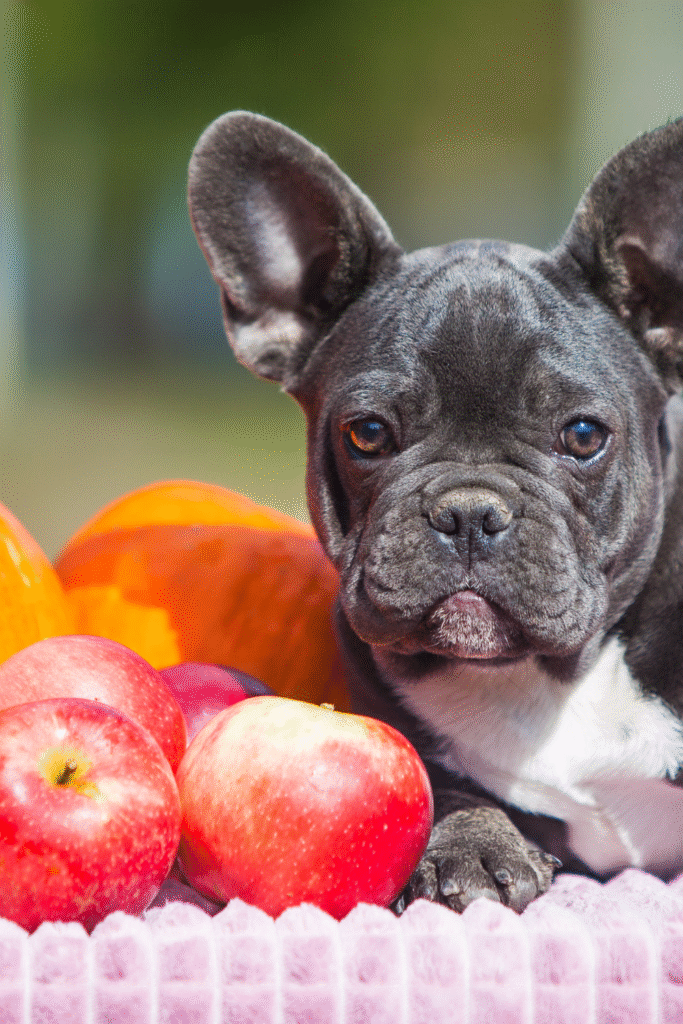
11. Diet and Nutrition Tips for French Bulldogs
- Balanced Diet: Provide a high-quality dog food that is specifically formulated for small to medium-sized breeds. Look for balanced options containing essential nutrients, including proteins, healthy fats, and carbohydrates.
- Portion Control: French Bulldogs are prone to obesity, so it’s important to measure their meals carefully and avoid overfeeding. Follow feeding guidelines provided by your vet or the dog food packaging.
- Avoid Fatty or Sugary Foods: Refrain from giving your French Bulldog leftover human food, especially items that are high in fat, salt, or sugar, as these can lead to weight gain and other health issues.
- Hydration: Always ensure your French Bulldog has access to fresh, clean water, particularly after exercise or during hot weather.
- Monitor Food Allergies: French Bulldogs are prone to food allergies. Watch for signs such as itchy skin, ear infections, or digestive issues, and consult your vet if you suspect any sensitivities.
- Feeding Routine: Establish a consistent feeding schedule with set meal times to prevent free-feeding habits and promote better digestion.
- Avoid Certain Ingredients: Steer clear of dog foods containing artificial preservatives, coloring, or fillers like corn and soy, which can sometimes trigger allergies or digestive problems.
- Healthy Treats: Use low-calorie treats for training or rewards, and limit the quantity to maintain a balanced diet. Fruits like apples (without seeds) or carrots can also be healthy snack options in moderation.
- Watch Their Weight: Regularly check your French Bulldog’s weight and adjust their food portions or activity level as needed to maintain a healthy physique.
- Consult a Veterinarian: Work with your veterinarian to tailor a diet plan that addresses your French Bulldog’s specific health needs, age, and activity level.

12. Caring for Rare-Colored French Bulldogs
- Ensure regular veterinary check-ups to monitor for any health conditions associated with rare color genetics.
- Provide a balanced diet rich in essential nutrients to support their skin, coat, and overall health.
- Use hypoallergenic grooming products to help prevent skin irritation or allergies.
- Create a comfortable and clean living environment to minimize exposure to allergens and irritants.
- Be vigilant about any changes in their behavior or appearance, as early detection of issues can improve outcomes significantly.
Owning a rare-colored French Bulldog requires special attention to their unique needs.
Their sensitive coats and skin benefit from gentle grooming products and regular moisturizing to prevent irritation.
Additionally, monitoring their environment for allergens and providing proper nutrition can go a long way toward keeping them healthy.
Regular vet check-ups are essential to catch any early signs of health issues.
With the right care, these stunning dogs can lead happy, fulfilling lives, delighting their owners with their charm and one-of-a-kind appearance.
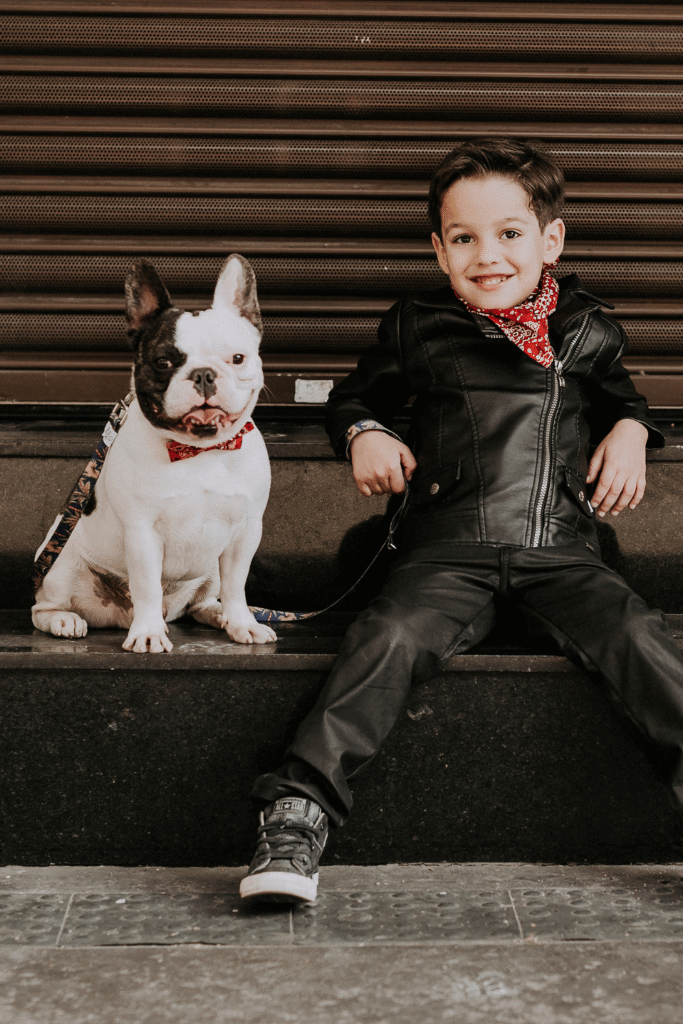
13. Are French Bulldogs Good with Children?
French Bulldogs are known for their friendly and affectionate nature, making them great companions for families with children. Here are some key points to consider:
- Gentle Temperament: French Bulldogs are generally calm and patient, which makes them suitable for interacting with kids of various ages.
- Playful Nature: They enjoy playtime and can keep children entertained, fostering a fun and engaging companionship.
- Size and Strength: Their small size and moderate energy levels make them less likely to overpower or accidentally harm young children during play.
- Easy to Train: French Bulldogs are intelligent and eager to please, which helps in teaching them to behave gently around kids.
- Supervision is Key: Like with any breed, it’s important to supervise interactions between dogs and children to ensure mutual safety and respect.
- Bonding Opportunities: They often form strong bonds with their human family, providing comfort and companionship to children.
With proper socialization and guidance, French Bulldogs can become wonderful family pets that thrive in homes with children.
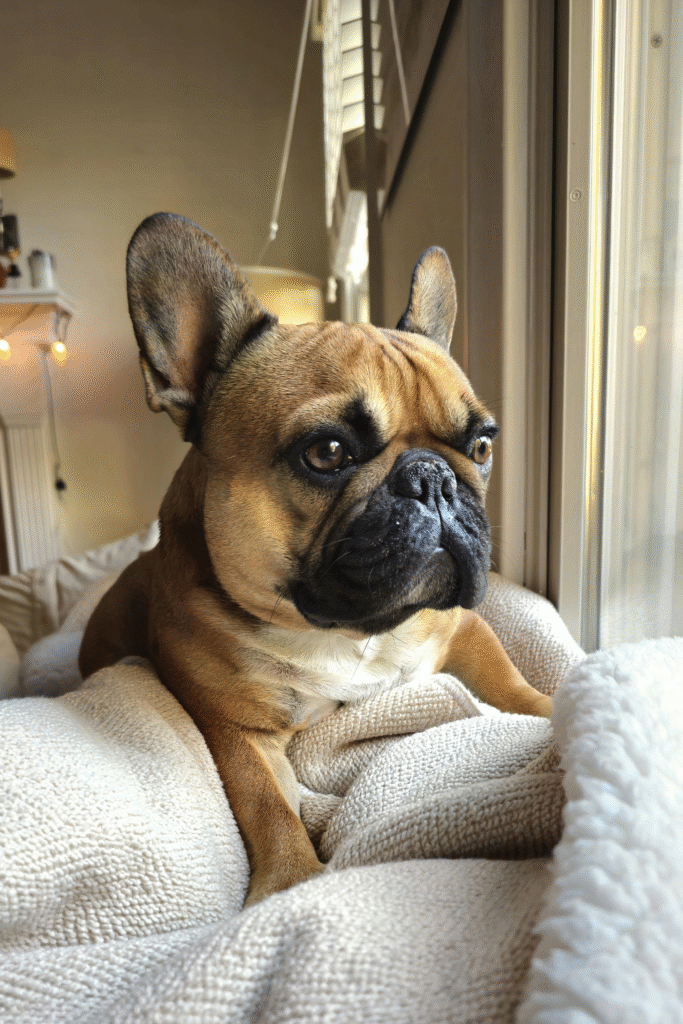
14. French Bulldogs in Apartments and Small Spaces
- French Bulldogs are well-suited for apartment living due to their small size and relatively low activity levels.
- They adapt easily to compact spaces and do not require large yards to thrive.
- Daily walks and short play sessions indoors are usually enough to meet their exercise needs.
- These dogs are quiet by nature and generally not prone to excessive barking, which is ideal for shared living environments.
- Ensuring they have comfortable bedding and toys helps keep them content and mentally stimulated while indoors.
- Proper temperature regulation is important, as French Bulldogs can struggle in extreme heat or cold, making a controlled indoor climate beneficial for them.
- Training them with positive reinforcement can help prevent any undesirable behaviors that might arise from boredom or lack of structure.
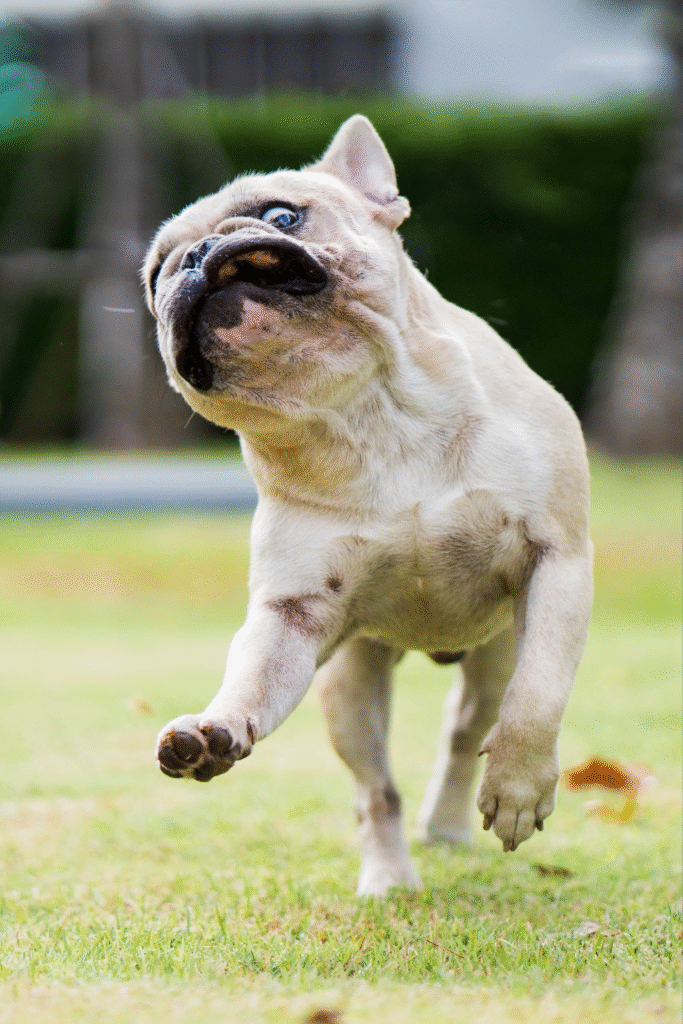
15. Training Tips for French Bulldogs
Training a French Bulldog can be a rewarding experience with the right approach. Here are some detailed tips to help you effectively train your Frenchie:
- Positive Reinforcement
French Bulldogs respond exceptionally well to positive reinforcement techniques. Use treats, praise, and affection to reward good behavior. Avoid harsh punishments as these can make them stubborn or anxious.
- Consistency is Key
Be consistent with your commands and training methods. Use the same words for commands and ensure all family members are on the same page to avoid confusing your dog.
- Keep Training Sessions Short
Frenchies can have short attention spans, so keep training sessions brief and engaging. Aim for 5-10 minute sessions multiple times a day to keep them focused and motivated.
- Start Socialization Early
Introduce your French Bulldog to different people, pets, and environments while they are still young. This helps prevent fear or aggression later in life and ensures they grow into a well-adjusted adult dog.
- Housebreaking Patience
House training requires patience and regularity. Take your Frenchie to their designated bathroom spot frequently and immediately after meals, naps, or playtime. Offer praise when they go in the correct spot.
- Teach Basic Commands First
Begin with simple commands like “sit,” “stay,” and “come.” These form the foundation for more complex training and help establish your role as a leader.
- Use Interactive Toys
French Bulldogs love mental stimulation. Incorporate interactive toys or puzzle feeders into their training to make learning fun and rewarding.
- Address Stubbornness Gently
Frenchies can be a bit stubborn at times. Maintain patience and use encouragement rather than frustration to guide them through training challenges.
With time, patience, and love, French Bulldogs can learn essential skills and adapt well to household rules, becoming a delightful and obedient companion.
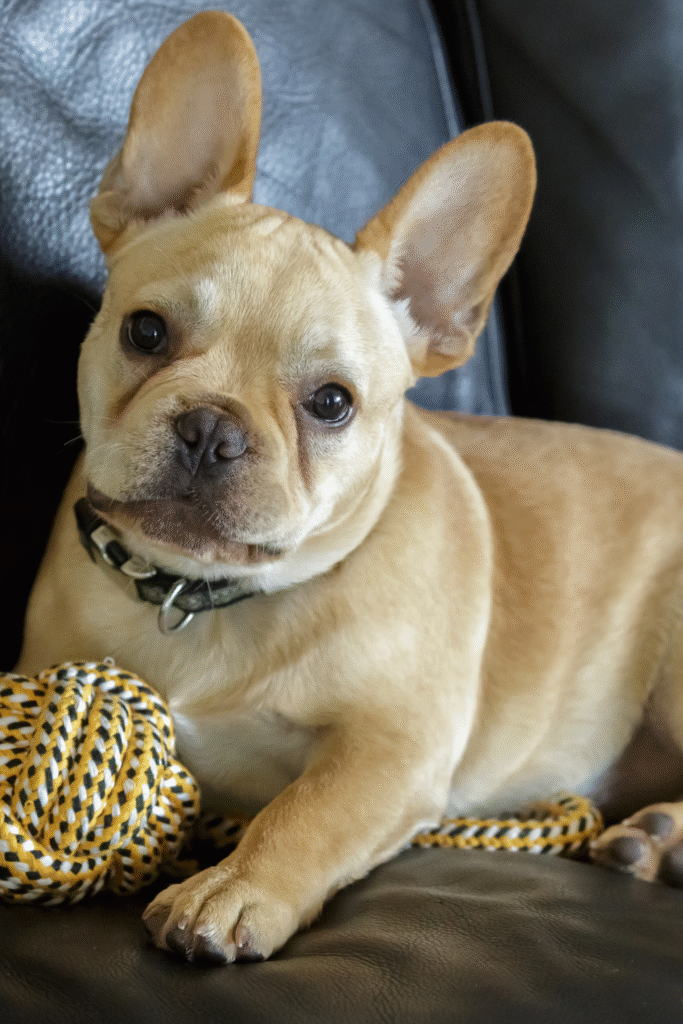
FAQs
Q1: Are French Bulldogs good for first-time owners?
A: Yes, French Bulldogs are ideal for first-time owners due to their low-maintenance grooming and friendly personality.
Q2: How often should I feed my French Bulldog?
A: Twice a day is recommended for adult French Bulldogs, with portion sizes tailored to their weight and activity level.
Q3: Do they do well in apartments?
A: Absolutely—French Bulldogs are perfect for apartment living thanks to their compact size and minimal exercise needs.
Q4: Are French Bulldogs good with children?
A: Yes, French Bulldogs are known for their affectionate and gentle nature, making them great companions for children.
Q5: Do French Bulldogs require a lot of exercise?
A: No, French Bulldogs require moderate activity such as short walks or playtime, making them suitable for less active households.
Q6: Are French Bulldogs prone to health issues?
A: Like many purebred dogs, French Bulldogs can be prone to certain health issues, such as breathing difficulties and joint problems, so regular vet visits are essential.
Q7: How do I care for a French Bulldog’s coat?
A: Their short coat is relatively low-maintenance and requires weekly brushing to remove loose hair and maintain a healthy coat.
Q8: Do French Bulldogs bark a lot?
A: No, French Bulldogs are not excessively vocal. They may bark occasionally, but they are generally quiet dogs.
Q9: Can French Bulldogs tolerate hot weather?
A: French Bulldogs are sensitive to heat due to their short snouts and should be kept in cool environments during hot weather to avoid overheating.
Q10: How long do French Bulldogs usually live?
A: The average lifespan of a French Bulldog is around 10–12 years, though proper care and a healthy lifestyle can sometimes extend this.
Q11: Do French Bulldogs get along with other pets?
A: Generally, French Bulldogs are friendly and can get along well with other pets if properly socialized from a young age.
Q12: Are French Bulldogs easy to train?
A: Yes, French Bulldogs are intelligent and eager to please, but they can also be stubborn, so consistent and positive reinforcement is key.
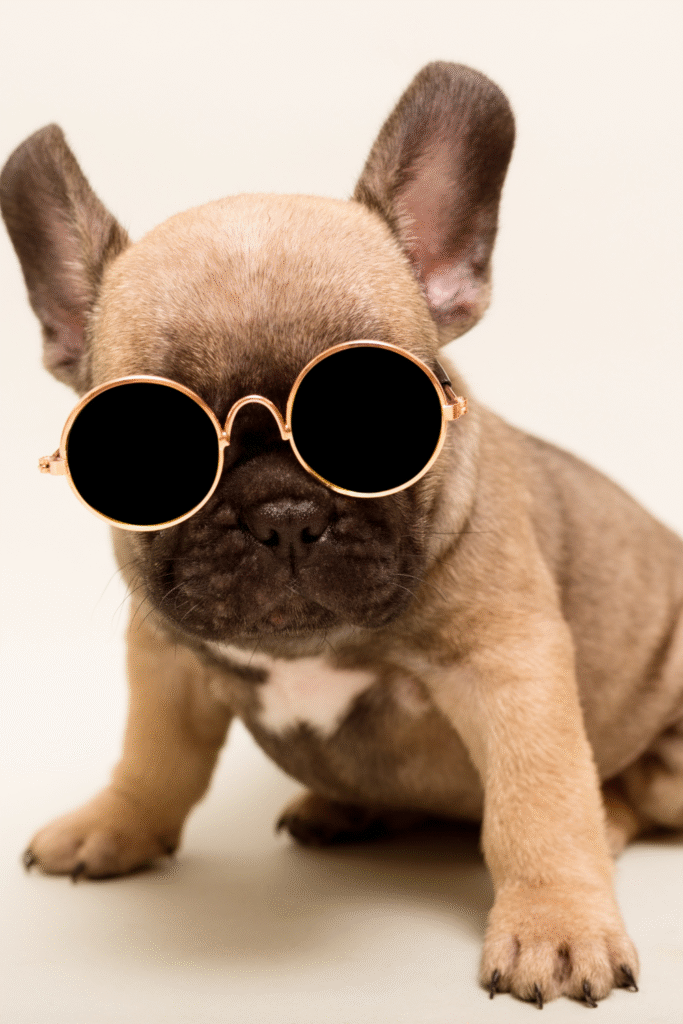
Endearing, adaptable, and affectionate, French Bulldogs are a wonderful pet option for the right owner.
By understanding their needs and quirks, you can make an informed decision about adding one to your family.
